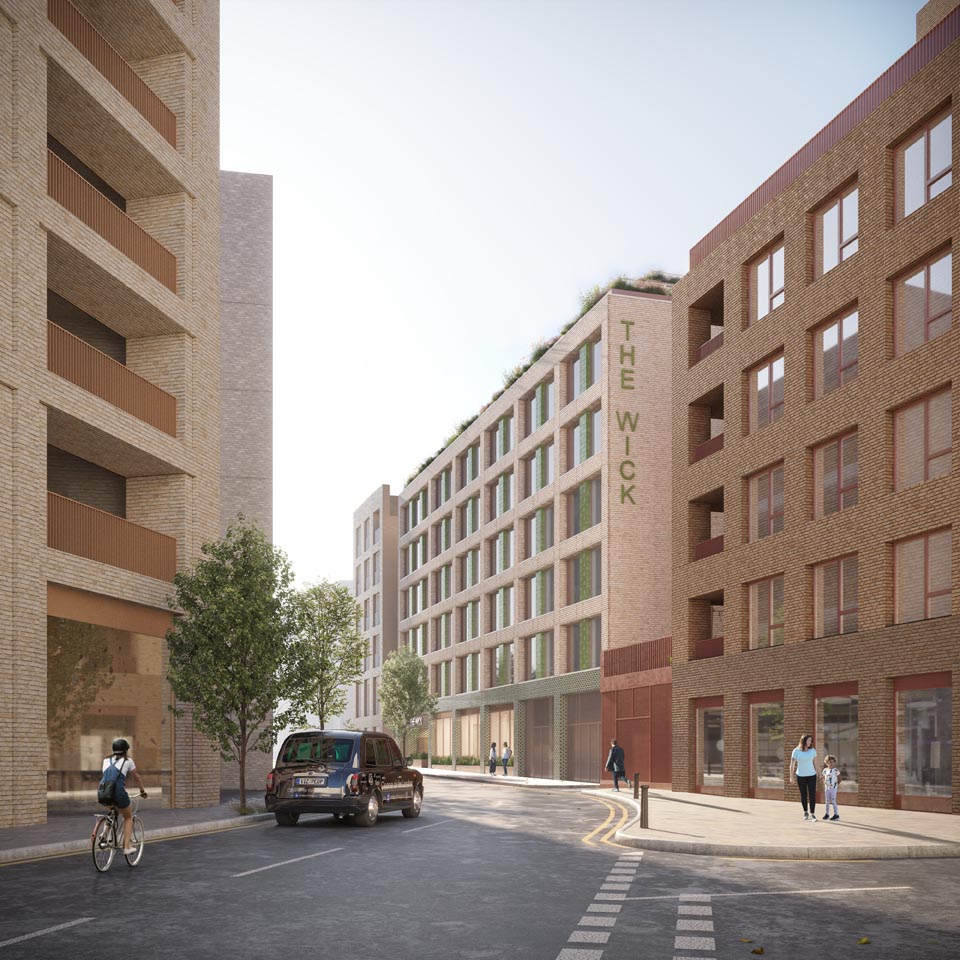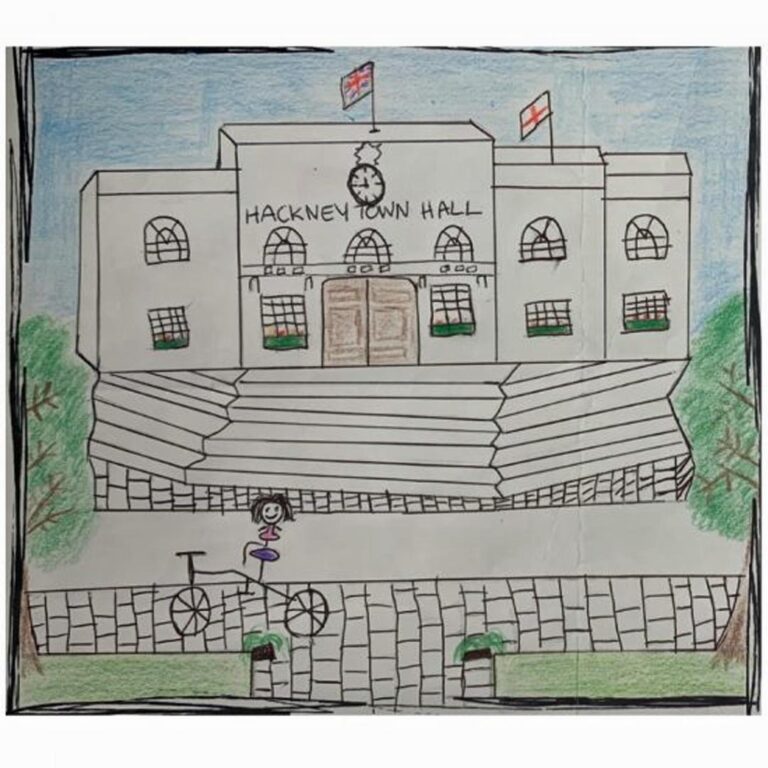
Discover The Lighthouse & Gardens
an ambitious ‘meanwhile’ project that mixes wellness and community activities in a striking urban setting
In its recent history, Hackney Wick has been a testing ground for alternative methods of spatial occupancy. Informal adaption of living and working spaces through various means (not necessarily recognised by local authorities) has led to the area’s wider identity as a creative neighbourhood. Though the area is going through significant change and becoming more formalised in the process, there are still organisations testing new ways to enable and empower community and resident-led voices at an urban scale.
Community influence in neighbourhood decision-making usually has the least leverage in the planning system, often reducing nuanced arguments about development to a binary ‘for’ or ‘against’. This is largely due to the period in which comments are taken at a statutory level; after a planning application has been received and the majority of the design work and details are locked in. Real participation in the process comes from involvement and community input at the earliest stages, collaborative working and a degree of power sharing.
To genuinely play a role in an area going through such a fast pace of change, local people want to know that a new development is also going to have a mutual benefit for the existing community. They don’t only want to comment on the physical appearance of something, but to have a say in the direction of the ‘end-use’, occupancy and the less tangible ‘social value’ that schemes promise. So how has Hackney Wick been doing things differently?
Several new developments are emerging here that depart from the traditional residential model which has shaped the area’s growth in recent years. Different types of uses offer a greater diversity of experiences in a neighbourhood, but don’t always align with the view of its community. For local groups to be able to express themselves, strong representation and political recognition is needed. Hackney Wick is lucky to have a well-established, free to access creative network in its Cultural Interest Group (CIG), which has been meeting on monthly Friday mornings since 2010. It’s a non-profit organisation, both a business and a live social network that connects and promotes area-wide creative economy stakeholders.
For a developer reaching out to the community in a new location, it can be difficult to connect with local organisations and groups, so over time, the CIG has become an important tool to introduce external organisations into conversations particular to this area. It enables working relationships, finds potential tenants and, crucially, can help shape development briefs to be more locally aligned.
Both the Wick Hotel, a 101 bed, purpose-built hotel on Rothbury Road, and a new co-living scheme on Wallis Road by Halcyon Group, engaged with the CIG network as a platform to build meaningful links into the area.
“Community engagement can be stale, but this is a much deeper approach,” says Harry Manley, Head of Planning at Halcyon. “The CIG network is a great way for us to be connected into the community here.” Each development has chosen to engage at a community level far more openly compared with the more usual approach.

The Wick Hotel, brought forward by Frank Capital and Infinite Partners, closely worked with and listened to local voices when building the brief for the hotel. Away from the fixed elements – things like servicing and bedrooms – the developer decided to have open conversations around the programming and usage of the building’s less defined areas. Spaces which could cross into public use, such as the ground floor lobby, that could provide shared benefit for visitors and locals alike.
Engagement as part of the planning process can often be seen as lip service, and for many there is genuine doubt cast towards ‘what is promised’ versus ‘what is delivered’.
James Penfold, Director of Infinite Partners, says his vision for the development is to build networks at a neighbourhood level, so that the scheme can offer something for multitudes of people, plus show measurable positive impacts when in operation. When it comes to how projects are delivered, he says he wants to “rip up the rulebook” of how things are normally done – especially here, in an area he feels passionately about, and is keen the hotel helps retain and add to its unique character.
Introduced through the CIG, his development team made contact with local businesses, community groups and representatives. Through numerous events, workshops and meetings, the relationships built locally across the pre-planning stages have influenced the decision-making and direction behind The Wick Hotel. Through these conversations, a Community Investment Programme (CIP) has been launched and adapted specifically to local needs. Bobby Kasanga, founder of Hackney Wick Football Club (HWFC) was part of early engagement sessions and contributed to how the ground floor space will be run – a free open-access workspace, reception and what’s termed the ‘concept store’.
As the CIP has been submitted as part of the planning application, it creates a long-term partnership with HWFC as it is a commitment to work together when the hotel becomes operational. Bobby will also be involved in the delivery of the investment programme. He tells us that it will help enable youth employment in the area through his personal outreach work. HWFC will be able to have a greater presence and use of physical space with the hotel’s concept store – a flexible, rolling showcase space that is much more than a place to sell wares – supporting local makers and organisations to promote themselves and hold events. The access to space, overseen by the investment programme steering group of local organisations, will ensure that these promise can be upheld long into the future.
Hackney Wick & Fish Island Community Development Trust (CDT)’s mission is to enable community ownership of spaces within the area. This can ensure long-term retention of the buildings, set genuinely affordable commercial rates for businesses and provide physical work space for fledgling social enterprises. Over the last few years, the CDT has been working hard towards attaining spaces, including starting local economy incubator The Loop – their temporary circular economy hub currently based at 119 Wallis Road.
The site spanning 115 – 119 Wallis Road is also set to bring Halcyon’s co-living scheme to Hackney Wick. The developer has been working closely with the CDT, offering the warehouse on a meanwhile basis to enable The Loop to happen. Scaling up the circular economy work the CDT does beyond their original Textile Reuse Hub over at Fish Island (see p.13)
“We recognise the benefit of working together with third sector and community organisations,” says Manley. “Introduced through the CIG, we began reaching out to the community late in 2022 and began speaking with the CDT on how the ground floor could operate in the new buildings, wanting them to offer long-term community benefit to everyone even if they are not a resident of the development.”
Those conversations have slowly moved towards the CDT creating a long-term partnership with Halcyon, as they seek to secure a 99-year lease at a peppercorn rate to manage and operate some of the ground floor units of the eventual new development. The CDT is passionate about activating commercial spaces, that can often sit empty for years as part of new developments waiting on high-paying tenants.
They are well positioned as an organisation to manage and occupy spaces, as Alex Russell, Executive Director of the CDT states, “We understand where the gaps are, where there is growth. We know what local authorities need and can bring together the three sectors of political, commercial and community.” This can support local business growth and creation, providing certainty and stability for start-up enterprises, makers and creatives. “Our vision for the space is to be connected to the creative and circular economy,” says Alex, “engaging with the public, to host events and be authentically ‘of the area’.” The ability to be a leaseholder will also be a major milestone for the CDT on its way to becoming financially self-sufficient and its long-term success.
Manley explains it has changed their thinking of how they structure the development – trying a new opportunity and changing the appraisal – wanting to give the flexibility to the CDT to achieve their vision. It also shows a level of commitment to the area to allow local knowledge to drive the selection and enterprise of new spaces.
As emphasised by these two new developments, the success of what eventually happens within them really can be shaped and tailored more closely to a community perspective. In Hackney Wick and beyond, communities must become more than just passive participants within the planning process and can take on a formalised active role. Opportunities like the ones highlighted here give local creatives and entrepreneurs the chance to show that they are trustworthy, and often better for a project and its developer than simply seeking the highest bidder for space.
Managing buildings in the short-term offers a valuable chance to showcase that a fledgling locally-founded business or organisation can be both commercial and socially successful, and therefore is more likely to one day be the end user.
As the post-Olympics planning powers are to be transferred back to Tower Hamlets and Hackney from the London Legacy Development Corporation (LLDC) at the end of 2024, these projects could be small steps towards genuine community building, and their methods a better benchmark on how developers and communities can work together everywhere.

an ambitious ‘meanwhile’ project that mixes wellness and community activities in a striking urban setting

Creative Wick founder, William Chamberlain, on the steady growth of the Hackney Wick model of ‘inside out’ regeneration

The big summer music events in Victoria Park

It’s the place to find out how you can get involved in the big summer festival activity in Victoria Park

Cyclists want Caroline Woodley to make the borough even more friendly for two-wheeled travel

When an area changes as rapidly as Hackney Wick today, it can place a range of stresses on our wellbeing. But help is close at hand